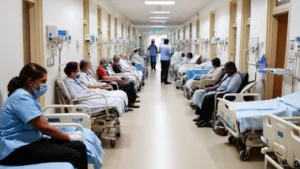Articles & News
- Inicio
- Blog
23. marzo 2023
News from the Capitals
News from the Capitals #57

France
This week has been the most chaotic since the “Gilets Jaunes” crisis. Indeed, France is going through a social and political crisis since the rejection of the motion of censure on Monday by 9 votes. The motion only received 278 votes in favor but needed the support of 287 MPs to pass.
As you know, pension reform has been an explosive subject in recent months. The government has shown a lack of clarity and pedagogy to explain its reform.
Thus, all the existing unions have been on strike for 9 days now. This Thursday 23 March, the strike intensifies with the cancellation of several modes of transport. The strike of the garbage collectors in Paris is not over either and waste continues to accumulate in the streets.
The demonstrations in Paris and other major French cities also highlight a certain lack of understanding between the government and the rest of the population. This Wednesday, the president of the Republic, Emmanuel Macron, was interviewed on television to defend his bill.
According to polls, most of the population wants a dissolution of parliament or a reshuffle of the government. Prime Minister Elisabeth Borne was confirmed in her position and the president ruled out any dissolution of parliament. Emmanuel Macron preferred to focus on upcoming bills such as immigration, education, and ecology.
Trade union representatives responded that the president’s intervention was arrogant as usual and that they would call for demonstrations throughout the country until the bill was withdrawn. The next four years of Emmanuel Macron’s second term will be difficult for the president, who will not be able to count on a coalition with the unreliable conservative partners in the national assembly.
UK
MPs vote in favour of Stormont brake
Rishi Sunak’s new Brexit deal, the Windsor Framework, overcame its first hurdle this week as the UK MPs voted overwhelmingly in favour of the Stormont brake. The Stormont brake – which would give a future Northern Ireland Assembly the power to object to changes to EU rules that apply in Northern Ireland – was passed with 515 votes to just 29, with opposition coming from the DUP and several Tory MPs, including former PMs Boris Johnson and Liz Truss and some members of the ERG. Foreign Secretary James Cleverly is reportedly set to meet the EU’s Maros Sefcovic in London on Friday to formally adopt the deal, though Sunak and the Government will now have to turn their attention to Northern Ireland as DUP leader Jeffrey Donaldson confirmed that the party would not be returning to Stormont to restore power-sharing.
Boris Johnson interrogated by the Privileges Committee
After months of investigation into his behaviour while Prime Minister, Boris Johnson this week faced questions from the privileges committee on whether he deliberately misled parliament during his time as PM, particularly with regards to Partygate. The four-hour session explored a range of evidence, including WhatsApp, with the cross-party committee members questioning Johnson’s intentions when he suggested no rules had been broken. The Committee are set to release their report and conclusions in the coming few weeks. If found in contempt of Parliament, the MPs could call for a suspension with a ban of 10 days or more opening the way for a recall petition which could lead to a by-election in Johnson’s Uxbridge and Ruislip seat.
Germany
German parliament on a diet
On March 17, the traffic light coalition passed a law that will limit the number of representatives in the Bundestag to a maximum of 630 in the future. Currently, there are 736. Originally, the size of the parliament was to be 598 seats. However, due to the complicated German electoral system, it has been growing from election to election for years.
So how does voting work in Germany? Every German voter has two votes in the Bundestag election. The first vote selects a candidate from the voter’s election district. There are a total of 299 election districts. Whoever receives the most votes in a district enters the Bundestag. A further 299 representatives enter the Bundestag via a second vote for the party lists in the 16 federal states. The second vote determines the relative strength of the parties represented in the Bundestag. The votes are converted into seats in parliament.
Since some parties win more seats in the first vote than they are entitled to according to the second vote, additional deputies are added through so-called overhang and compensatory mandates to maintain the correct ratio of party seats won in the second vote. This leads to an increase in the size of the Bundestag.
The electoral reform now ends this. Instead, not all candidates elected in the first round will enter the Bundestag if their party is entitled to fewer seats in the second round.
Police raids in “Reichsbürger” network surroundings
After the large-scale raid at the beginning of December, there have again been searches in the surroundings of a “Reichsbürger” network. On March 22, police searched the homes of suspected witnesses and supporters of the group in several federal states. The action was related to the searches in December when a total of 25 people were arrested.
Twenty properties were searched in a total of eight federal states and Switzerland. During an operation in Reutlingen, a police officer was shot, but there was no danger to his life. The shooter was arrested.
The members of the “Reichsbürger” network dream of a change of system in Germany and want to implement it by force of arms if necessary. They want a new government to take power, presided over by a former aristocratic family. The fantasies are said to have included a storming of the Bundestag in Berlin, the establishment of armed “homeland security companies” – and the arrest of democratically elected MPs by a newly formed army.
Spain
No Confidence Motion Rejected
The Spanish Congress has rejected a motion of no confidence, which was presented by the far-right party Vox and had independent economist Ramón Tamames as its candidate for prime minister. The motion was opposed by all other parties except for the conservative People’s Party (PP), which abstained. In total, the motion only received 53 votes in favor, 52 of which came from Vox and one from former Ciudadanos MP Pablo Cambronero. The motion needed the support of 176 MPs to pass. This was the second no-confidence motion presented by Vox, the first in Spanish history to be led by an independent candidate, and the sixth since the Spanish Constitution was enacted in 1978. In short, a grotesque representation of the divide within Spanish politics and the berating tension among its political parties that are becoming more and more nervous for the upcoming elections.
Bank of Spain raises GDP growth forecast for 2023 while reducing it for 2024
The Bank of Spain has raised its GDP growth forecast for Spain in 2023 to 1.6%, three-tenths higher than its previous estimate in December and consistent with its mid-February advance estimate. Additionally, the bank has reduced its projections for 2024 by four-tenths to 2.3% and maintained its estimate of 2.1% for 2025, according to the latest Quarterly Report and Macroeconomic Projections for the Spanish economy published on Wednesday. Furthermore, the bank has lowered its inflation forecast for this year to 3.7% due to a significant reduction in energy consumption prices in recent months. For 2024, the bank expects average inflation to be 3.6%, while it would decrease to 1.8% in 2025. To underlying inflation, the bank expects it to begin moderating around spring and reach an average of 3.9% at the end of 2023 before decelerating to 2.2% in 2024 and 1.8% in 2025.
Spain’s Constitutional Court upholds euthanasia law, rejecting the conservative appeal
Spain’s Constitutional Court has validated the country’s euthanasia law, which was passed in March 2021, making it legal for people with “serious and incurable” illnesses to end their lives with medical assistance. The court rejected an appeal from conservative politicians and religious groups who argued that the law violated the right to life enshrined in the Spanish constitution. The law, which went into effect in June 2021, makes Spain the fourth European country to legalize euthanasia after Belgium, the Netherlands, and Luxembourg.
Belgium
„Au revoir, tot ziens, auf Wiedersehen!“: Belgium’s four famous departures of the week
This week, Belgium bid a fourfold farewell: In different circumstances and for very different reasons:
- Gone for good and forever? On Wednesday, Belgian health ministers agreed upon the reform of face mask usage in hospitals and other medical institutions: Wearing mouth-nose protection is no longer an obligation but remains recommended. However, the agreement leaves room for institution-specific maneuvers, depending on the management’s assessment.
- Goodbye, Total Energies petrol stations! Following the recent announcement of French Oil and Gas giant Total Energies to sell their petrol station infrastructure in four European countries, a Canadian Nightshop Franchise jumped in on Wednesday and bought a 60% share of said network on the Belgian and Luxembourgian market. The consequences for more than 1.000 affected employees are yet unknown: Another goodbye waiting around the corner?
- Farewell your majesty! King Philippe and his wife Queen Mathilde left on Wednesday for an official state visit to South Africa. Accompanied by Foreign minister Hadja Lahbib, and economic and scientific representatives, there will be plenty to discuss throughout the four-day stay. The tremendous racist colonial and imperial past of both nations is however unlikely to feature among the talking points…
- The show is over! Steve van den Kerkhof has been a constant and reliable rock for the Belgian fun parc Plopsa. Throughout the past 23 years, he led the amusement parc through many hardships, sharing laughter and tears… And some inappropriate behaviour! Following mobbing and harassment complaints from more than a dozen employees, the direction decided to part ways with can den Kerkhof. Who laughs last, laughs best!
Netherlands
Compulsory buy-out of farmers is the way out of the crisis, the Netherlands was told in Brussels
Since the victory of the farmer’s party in the municipal council elections climate change and nitrogen has been a hot topic in the news this week.
Yesterday it was reported by the Nederlandse Omroep Stichting (NOS) that Diederik Samsom, once a prominent member of the second chamber and coalition member and now a head of cabinet in the Commission under Frans Timmermans, the executive vice president, advised our current Dutch cabinet on how to deal with the nitrogen reaction and a potential buy out of the farmers.
Samson has advised the Netherlands on behalf of the European Commission to oblige some of the farmers to be bought out. This is evident from documents that have been viewed by the NOS and research platform Follow the Money.
Background
In the policy initiated by Nitrogen Minister Van der Wal, compulsory buy-out is only seen as the very last option. But according to the European Commission, compulsory buy-out is precisely the recipe to get out of the crisis. Samsom expressed the position of the European Commission last November in a conversation with top Dutch officials.
Formally, the European Commission is not responsible for how the Netherlands achieves its nitrogen targets. Although Brussels checks whether member states comply with all European rules, it is largely up to the countries themselves to determine how they meet the set climate objectives. The European Commission can advise in this regard.
Samsom seems to have done the latter in the conversation. He pointed out that a voluntary squeeze-out scheme has been pending approval in Brussels for some time, but that the European Commission is usually quite strict about such schemes. In the case of a compulsory buy-out, the Commission is less strict, says Samsom. This would also make it possible to pay higher amounts to farmers or to have farmers stop under other favorable conditions.
Agreement in Brussels to reduce shipping emissions
Today it was reported by the “Nederlands Omroep Stichting” (NOS) that an agreement has been made in Brussels to reduce shipping emissions.
As people might know, The Netherlands is a small country but has a very big harbour in Rotterdam, making the Netherlands an important international stakeholder in the field of sea trade.
Dutch member of Parliament Vera Tax calls it “a historic agreement”. In Brussels, the European Parliament and the Council for Transport and Tourism agreed last night on rules for making international shipping more sustainable.
Large seagoing vessels must have reduced their CO2 emissions by 2 percent by 2025, with the ultimate goal of reducing emissions by more than 80 percent by 2050. “The entire transport sector is responsible for a quarter of all European emissions. This sector (sea shipping, ed.) is responsible for 14 percent.”
MEP Tax also adds that: “This entire sector was not mentioned in the Paris climate agreement, but everyone must become more sustainable, including shipping.”
Not only are rules being drawn up for the reduction of CO2 emissions from the ships, but from 2030 the ships must also use electricity when they are moored in the ports. Ships now run their engines to provide the ship with energy, which must change according to the agreement.
In conclusion: If ports and ships do not comply with the new rules, heavy fines will follow. “It makes no sense to come up with rules and not enforce them,” said the Dutch MEP.
Greece
A National Plan to Combat Obesity
On 22 March, the Ministry of Health in collaboration with the University of Western Attica (PADA) announced the National Program to Prevent and Combat Obesity in Adults. The program includes primary, secondary, and tertiary prevention actions, seeking on the one hand to reduce the risk factors responsible for obesity and on the other hand, to combat the effects of obesity, which often lead to the appearance of chronic diseases and multimorbidity.
The program is addressed to overweight or obese adults and enables people to a) have a free clinical assessment to know if they have any risk factors related to the appearance of obesity and to treat them in time, b) to receive free services by specialist nutritionists to improve their eating habits and physical condition, c) to receive free specialized combined treatment (nutritional counseling, health behavior change counseling and pharmacotherapy) in cases of severe obesity coexisting with serious chronic diseases. The program is expected to start in June of this year.
Pushing for the privatisation of water
On 20 March, the government passed a law of the Ministry of Environment and Energy, which creates the conditions for the privatisation of water in Greece. Despite the constant denials from government officials that this law will lead to the privatisation of water, which is currently under public control, the draft law now states that water providers can be public or private entities. Moreover, it creates a regulatory authority that will regulate the different entities that manage water. During the parliamentary debate, the opposition noted that this law would mean “spiking water tariffs, drastically limiting the availability of water to the agricultural sector, aggressively promoting commercialization and privatization of water supply enterprises.”
Publicaciones recientes
-
 10 Abr 2024Navigating Digitalisation - Challenges and Progress in German Healthcare
10 Abr 2024Navigating Digitalisation - Challenges and Progress in German Healthcare -
 20 Mar 2024Wealth Inequality drives Health Inequality: An analysis of primary care services in the UK
20 Mar 2024Wealth Inequality drives Health Inequality: An analysis of primary care services in the UK -
 14 Mar 2024From the Spring Budget to the General Election: The Lessons for the Life Sciences Sector and the NHS
14 Mar 2024From the Spring Budget to the General Election: The Lessons for the Life Sciences Sector and the NHS
